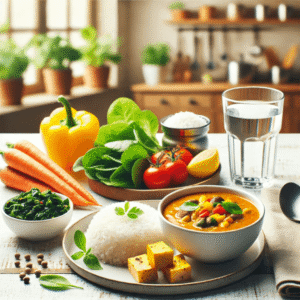One of the most common questions patients ask after surgery is about the best foods for liver transplant recovery — what to eat, what to avoid, and how to support healing through nutrition. Post-liver transplant outcomes are significantly affected by ”sarcopenia”, that is, a preoperative decrease of skeletal muscle mass.
A reversal of malnutrition, and more especially sarcopenia, is not a common occurrence following liver transplant. A liver-friendly diet isn’t just a suggestion — it’s a critical part of long-term success. That’s why choosing the best foods for liver transplant recovery matters from day one. This guide has a 7-day diet plan, the top 7 foods that aid in recovery, and details of a few protein supplements as professional advice.
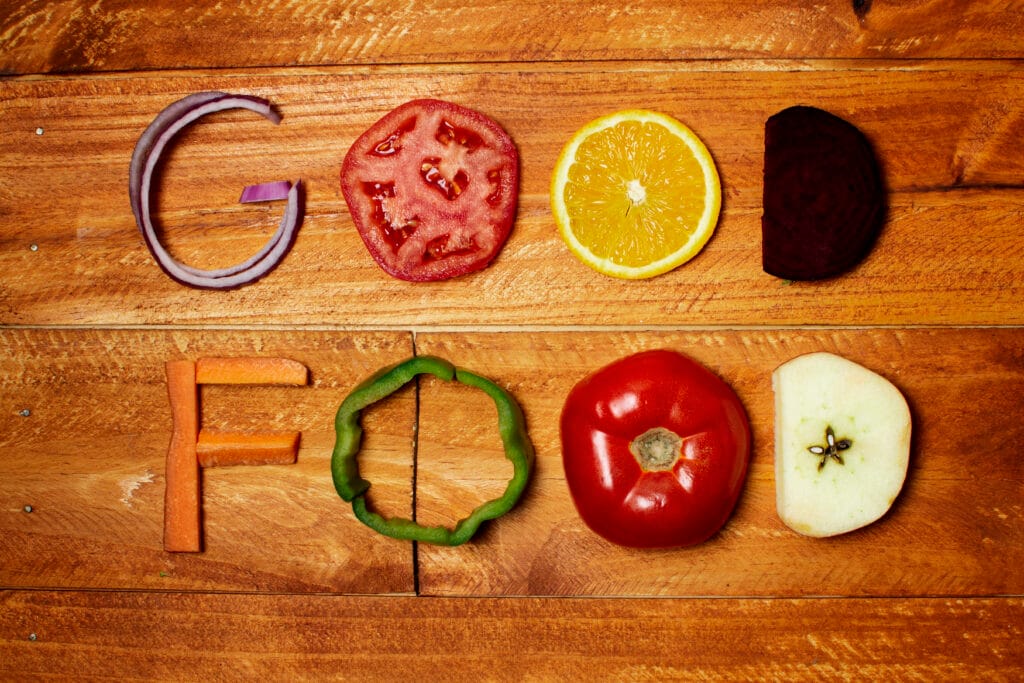
Types of Nutritional Deficiencies in Liver Transplant Patients
Eating the best foods for liver transplant recovery isn’t a temporary task — it becomes a lifestyle that protects your new liver for years to come.
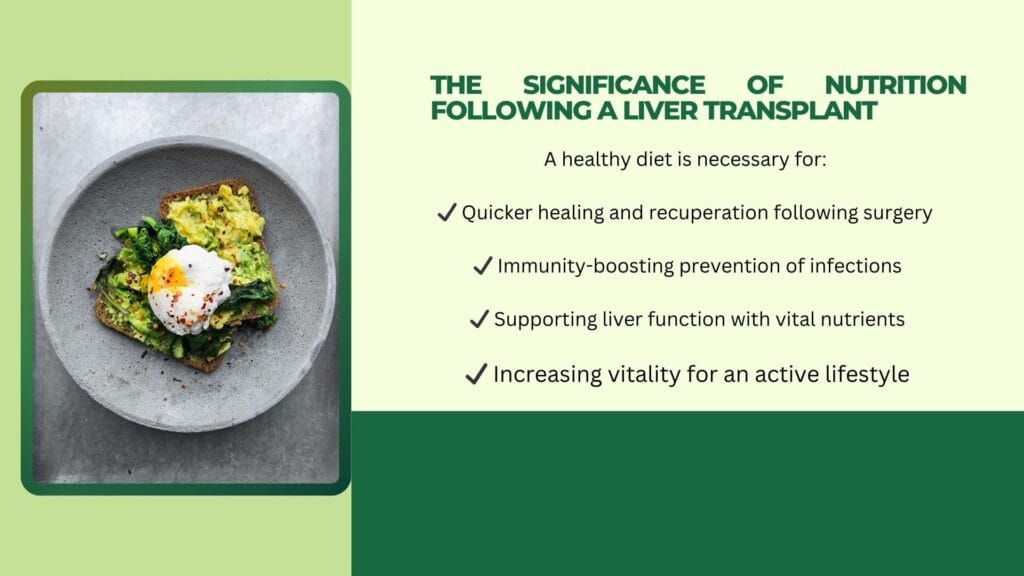
Patients who receive liver transplants frequently have several dietary deficits because of their chronic illness. The causes of these deficiencies are complex and include inadequate nutrition, malabsorption, changes in metabolism, and the effects of immunosuppressive drugs after transplantation.
Protein-Energy Malnutrition (PEM): Chronic liver disease(CLD) causes abnormal glucose metabolism, and increased protein breakdown, along with inadequate protein intake, leading to sarcopenia, or muscle atrophy.
Fat-Soluble Vitamin Deficiencies (A, D, E, K): In CLD patients, there is malabsorption of fat-soluble vitamins as a result of bile acid insufficiency, which ultimately leads to vitamin A, D, E, and K deficiency.
Water-soluble vitamin Deficiencies (B-complex, C): Vitamin B12 and folate deficiencies are common due to malabsorption and dietary restrictions, leading to anaemia and neuropathy. Vitamin C deficiency can impair wound healing and immune function.
Mineral Deficiencies (Zinc, Magnesium, Selenium, Iron): Zinc deficiency causes poor taste perception and immune dysfunction, while magnesium and selenium deficiencies contribute to muscle weakness and oxidative stress. Iron deficiency, especially in those with pre-transplant anaemia or blood loss, leads to fatigue and reduced oxygen transport.
After transplantation, nutritional needs change, and long-term dietary management with appropriate supplementation is crucial to replace the deficiency and ongoing demand. There is also an increased need for micronutrients and protein supplements immediately post-transplant for growing liver and the patient’s overall recovery from surgery. Regular nutritional assessments and a personalised diet with the best foods for liver transplant recovery help in transplant success.
7 Best Foods for Liver Transplant Recovery
From soft proteins to fibre-rich grains, the best foods for liver transplant recovery include items that reduce liver load and support immunity.
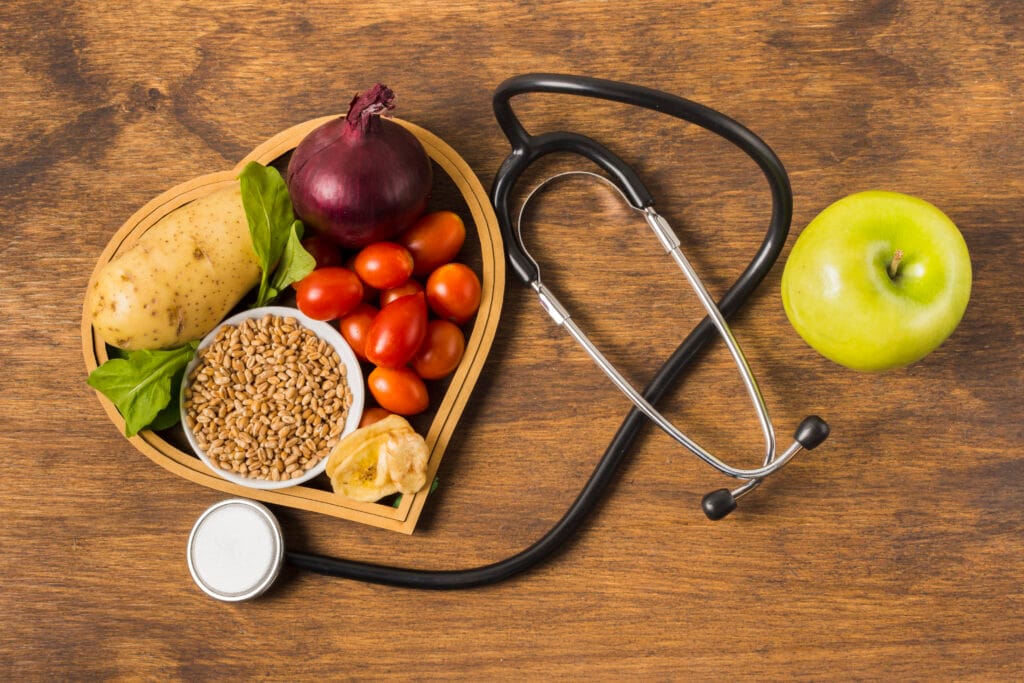
1. Protein-Rich Foods for Healing
Two risk factors for patients’ nutritional condition to progressively deteriorate following a liver transplant are negative energy and protein balance.
Protein helps repair tissues and strengthens muscles post-surgery. Include:
• Skinless chicken, eggs, and fish (for non-vegetarians)
• Lentils, chickpeas, paneer, and tofu (for vegetarians)
• Greek yoghurt, low-fat dairy, and nuts
2. Whole Grains for Energy
Complex carbohydrates provide sustained energy and aid digestion. Best options:
• Brown rice, quinoa, oats
• Whole wheat roti, jowar, and bajra
Even small changes like choosing steamed over fried can help you stay on track with the best foods for liver transplant recovery.
3. Fresh Fruits and Vegetables for Immunity
Packed with vitamins and antioxidants, these protect against infections:
• Fruits: Apples, oranges, bananas, berries
• Vegetables: Spinach, carrots, bell peppers, beets
• Tip: Always wash and cook vegetables properly to avoid infections.
4. Healthy Fats for Liver Support
Good fats reduce inflammation and promote heart health. Best sources: Including liver-friendly fats and antioxidants in your daily meals is part of choosing the best foods for liver transplant recovery.
• Olive oil, avocados, nuts
• Fatty fish like salmon (for non-vegetarians)
5. Dairy and Calcium-Rich Foods for Bone Health
Post-transplant medications may weaken bones. Include:
• Low-fat milk, yoghurt, and cheese
• Ragi, almonds, and sesame seeds
6. Hydrating Fluids to Detox the Body
Proper hydration helps prevent toxins from accumulating in the liver. Drink:
• 8-10 glasses of water daily
• Herbal teas (ginger, chamomile)
• Homemade fruit juices (without sugar)
7. Iron-Rich Foods for Strength
Iron prevents anaemia, common after a transplant. Eat:
• Spinach, lentils, kidney beans
• Lean meats and eggs (for non-vegetarians)
It’s essential to focus on the best foods for liver transplant recovery in the first 90 days post-surgery to avoid infections and complications. While fried or heavily spiced dishes should be avoided, the best foods for liver transplant recovery include mildly seasoned, nourishing foods that are gentle on the digestive system.
7-Day Meal Plan for Liver Transplant Recovery
Choosing the Best Foods for Liver Transplant Recovery can make a significant difference in healing speed and overall health stability. A structured Indian meal plan ensures your body gets the right nutrients. Many patients ask us about the Best Foods for Liver Transplant Recovery, and our answer is always the same: nutrient-dense, home-cooked meals tailored to your body’s healing needs.
Monday
✔ Breakfast: Moong dal cheela with mint chutney
✔ Lunch: Palak paneer with brown rice & cucumber raita
✔ Dinner: Vegetable dalia with sautéed spinach
Tuesday
✔ Breakfast: Oats porridge with flaxseeds & banana
✔ Lunch: Dal tadka with whole wheat roti & steamed broccoli
✔ Dinner: Mixed vegetable khichdi with ghee
Wednesday
✔ Breakfast: Besan chilla with yoghurt
✔ Lunch: Rajma with brown rice & beetroot salad
✔ Dinner: Jowar roti with vegetable curry
(Get the “full 7-day Indian meal plan, both for Vegetarian and Non-Vegetarian “as a printable PDF below!)
📥 Download Meal Plan & Checklist (PDF)
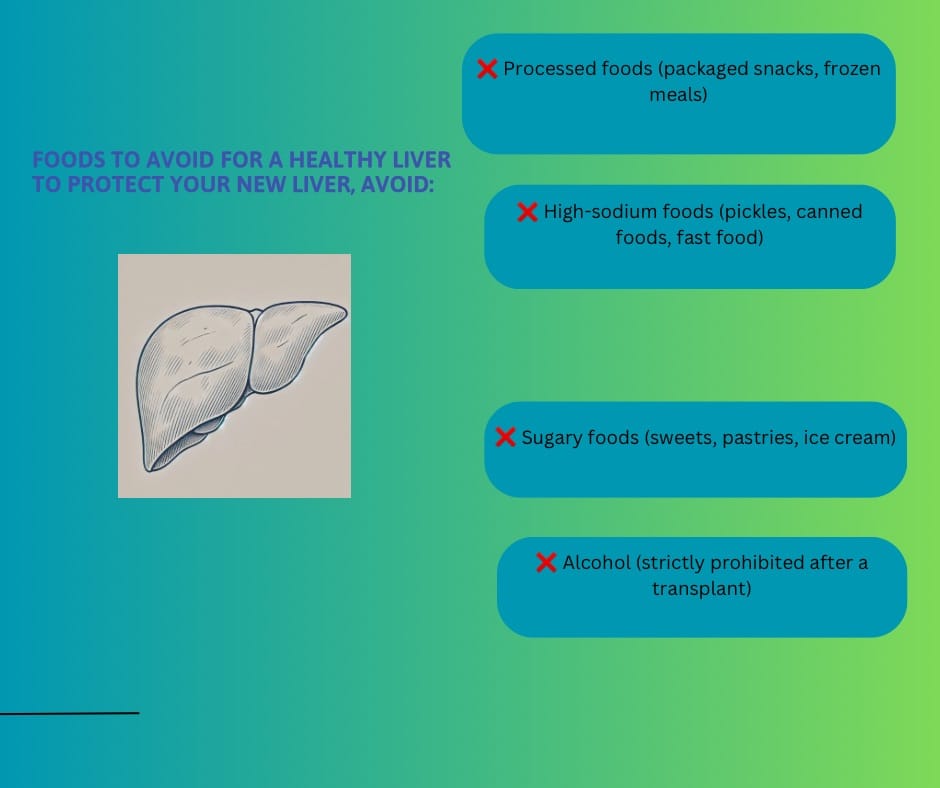
If you’re wondering what qualifies as the best foods for liver transplant recovery, consult a dietitian who can customise your plan.
Protein Supplements for Liver Transplant Patients
Long-term protein-energy deficiency brought on by chronic liver illness frequently results in sarcopenia, or muscle loss, in liver transplant recipients. High-quality protein supplements that supply vital amino acids, vitamins, and minerals without overburdening the liver with needless nitrogenous waste are advised by transplant doctors to promote muscle repair and liver function.
Ensure Powder, Hepatic Resource Powder, and Pentasure HP Powder are some of the top protein supplements for liver patients; they are all designed to promote the healing process following a transplant.
Ensure Powder (by Abbott) :
- 250 kcal per scoop,
- 9 grams of protein
- essential vitamins and minerals like calcium, vitamin D, and B-complex vitamins
Hepatic Resource Powder (by Nutricia):
- 200 kcal per scoop
- 10 grams of easily digestible protein, enriched with branched-chain amino acids (BCAAs) to support liver metabolism and reduce ammonia production.
Pentasure HP Powder (by Hexagon Nutrition):
- 220 kcal per scoop
- 12 grams of high-quality whey protein, plus L-arginine and L-glutamine to aid muscle repair and immune function.
These supplements help prevent further muscle loss, support post-transplant healing and provide balanced nutrition to ensure a stronger recovery. However, they should be taken under the guidance of a liver transplant specialist to match individual protein needs without overburdening the liver.
Micronutrients and Vitamin Supplements for Liver Transplant Patients
Liver transplant patients are often deficient in essential vitamins and minerals due to chronic malabsorption, metabolic changes, and medication effects. To support optimal recovery, immune function, and liver regeneration, transplant specialists recommend micronutrients and vitamin supplementation tailored to individual needs.
- Chronic liver disease and corticosteroid use post-transplant increase the risk of osteoporosis.
- Supplements containing calcium (1000–1500 mg/day) and vitamin D (800–1000 IU/day) help maintain bone strength.
Vitamin B12, Folate & B-Complex:
- Many liver patients have B-vitamin deficiencies, leading to fatigue and neuropathy.
- B-complex supplements with B12 (500–1000 mcg), B6 (25–50 mg), and folate (400–800 mcg) support energy metabolism and nerve function.
Zinc & Magnesium:
- Zinc deficiency is common in liver disease, contributing to poor appetite, taste changes, and immune dysfunction.
- Zinc (30–50 mg/day)
- Magnesium (200–400 mg/day) helps improve muscle strength, nerve function, and enzyme activity.
Vitamin A, E & C:
- These antioxidants protect against oxidative stress, support wound healing, and promote healthy skin and vision.
- However, vitamin A supplementation must be monitored to prevent toxicity in liver patients.
Since post-transplant medications like immunosuppressants can impact micronutrient absorption, regular blood tests and personalised supplementation guided by a transplant specialist are essential for maintaining long-term liver health and overall well-being.
Frequently Asked Questions
When can I return to a normal diet?
Most patients can resume a normal, balanced diet within 2-4 weeks, but avoid junk food, alcohol, and excess sugar. Have a healthy diet.
Can I eat out at restaurants?
Yes, but choose hygienic places. Avoid raw salads and street food.
Should I take supplements?
Consult your doctor before taking any supplements.
🌿Final Thoughts: Eat Right, Heal Faster & Stay Strong!
It takes more than just medication and follow-ups to recover from a liver transplant; it takes accepting a new lifestyle, and a proper meal plan. Your diet has a significant impact on your body’s ability to recover, build immunity, and maintain the long-term health of your new liver.
The goal of a balanced diet is accountability, not limitation. It all comes down to feeding your body the correct foods that maintain liver function, lower inflammation, and boost your vitality.
The nutritional choices you make have a significant impact, whether you’re a donor like Priya who is readjusting to routine or a recipient starting a new life. Promise yourself you’ll ensure your new liver stays healthy for years to come.
This journey is not about giving up what you love, but about learning how to enjoy food with wisdom and care.
Let your meals be colourful, diverse, and meaningful. And remember — you are not alone in this.
Your liver has given you a second chance. Let’s give it the best support we can — with every bite, every day.
